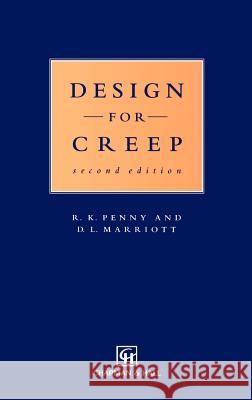Design for Creep » książka
Design for Creep
ISBN-13: 9780412590405 / Angielski / Twarda / 1995 / 430 str.
Our rationale for the second edition remains the same as for the first edition, which appeared over twenty years ago. This is to offer simplified, useful and easily understood methods for dealing with the creep of components operating under conditions met in practice. When the first edition was written, we could not claim that the methods which were introduced were well-tried. They were somewhat conjectural, although firmly based, but not sufficiently well devel oped. Since that time, the Reference Stress Methods (RSM) introduced in the book have received much scrutiny and development. The best recognition we could have of the original methods is the fact that they are now firmly embedded in codes of practice. Hopefully, we have now gone a long way towards achieving our original objectives. There are major additions to this second edition which should help to justify our claims. These include further clarification regarding Reference Stress Methods in Chapter 4. There are also new topics which depend on RSM in varying degrees: Creep fracture is covered in Chapter 7, where methods for assessing creep crack initiation and crack growth are fully described. This chapter starts with a review of the basic concepts of fracture mechanics and follows with useful, approximate methods, compatible with the needs of design for creep and the availability of standard data. Creep/fatigue interactions and environmental effects appear in Chapter 8."











